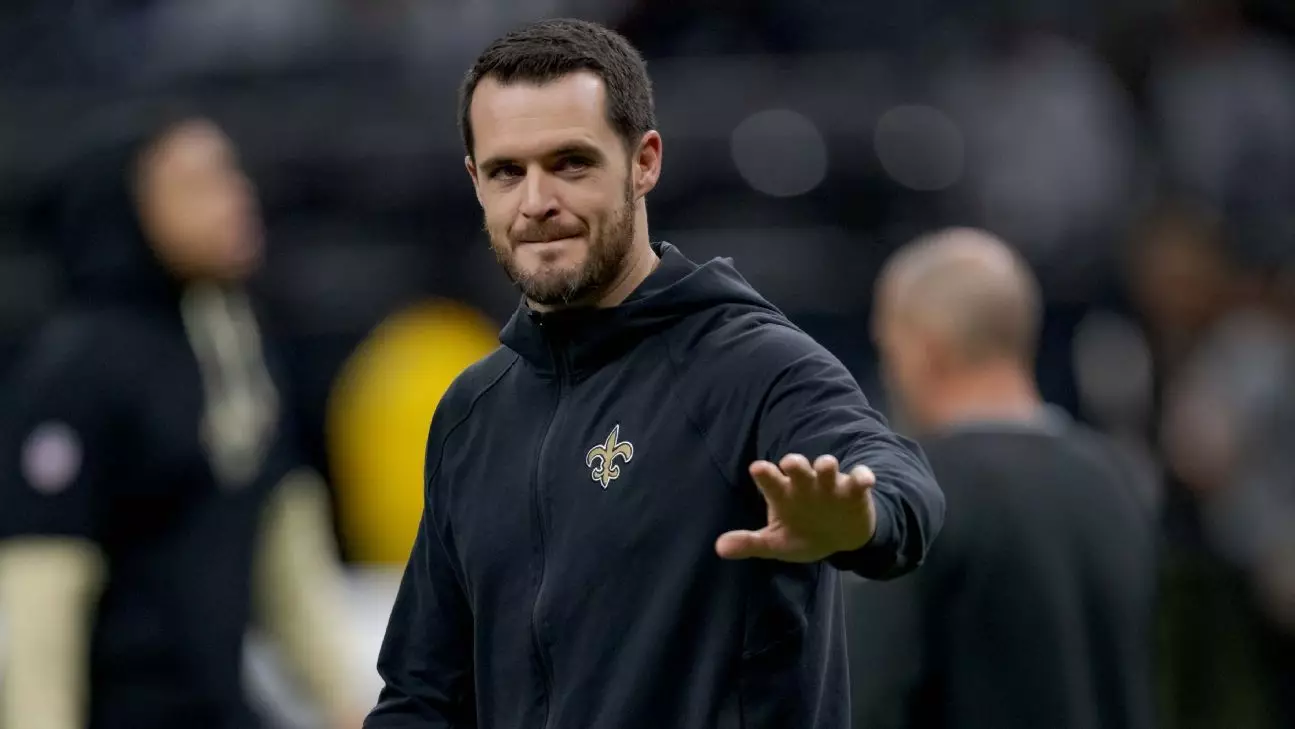In the often chaotic and scrutinizing world of professional sports, few narratives capture the essence of resilience quite like that of Derek Carr, the New Orleans Saints’ quarterback. Recently, Carr candidly addressed his shoulder injury during a guest sermon in Las Vegas, shedding light on an issue that had captivated fans and media alike. This response highlights Carr’s unique ability to use his platform for both personal expression and broader reflection, emphasizing the importance of understanding in a world rife with speculation.
Carr criticized the incessant chatter from outlets like ESPN and social media platforms, revealing a layer of vulnerability rarely seen in high-profile athletes. He underscored the emotional toll that such speculation can take, saying, “There’s nothing wrong, we’re figuring it out.” This sentiment transcends the confines of sports; it speaks to the very human experience of dealing with both physical injuries and the misinterpretations that can follow. His insistence on communicating openly with the Saints organization shows a proactive approach to managing his health and career, reinforcing the importance of transparency in professional sports.
Family First: A Personal Struggle
What truly resonates in Carr’s narrative is his emphasis on family in the face of adversity. His wife, Heather, experienced significant health issues and a miscarriage around the time of the injury, a poignant reminder that athletes are also individuals facing personal challenges. Carr’s comment, “If it’s going to be faith, family, football, it’s going to be faith, family, football,” reveals a prioritization that many could admire, particularly in an industry often criticized for its toxic culture of machismo where personal health is sidelined in favor of performance.
This struggle adds a layer of complexity to Carr’s situation. It compels fans and commentators to confront the often-glamorized perception of athletes and recognize their real-life struggles. Carr’s role as a husband and a person grappling with family issues takes precedence over his identity as a quarterback, thus enriching his public persona with a profound sense of authenticity.
Competition and the Weight of Expectations
As Carr navigates his recovery, the Saints have drafted quarterback Tyler Shough, introducing an element of competition that adds another layer of complexity. General manager Mickey Loomis was noncommittal about whether Carr would face internal competition once he returns to full health. This uncertainty is a double-edged sword; it highlights the harsh realities of professional sports where players are constantly gauged against one another, yet it also instills a sense of urgency for Carr to reaffirm his position as the starter.
The tension between Carr’s need to establish his health and the pressure to perform while being publicly scrutinized begs the question: how can athletes manage their own wellbeing whilst under the collective gaze of fans and media? Carr’s journey through injury and personal trials, while competing against emerging talent, will not only define his season but potentially his career. His focus on family and faith offers a powerful narrative that contrasts sharply with the typical sports discourse focused solely on competitive success and physical prowess.
Ultimately, Carr’s experience reminds us that beyond the games, the records, and the accolades, there exist human stories of resilience, vulnerability, and the enduring power of family and faith.

